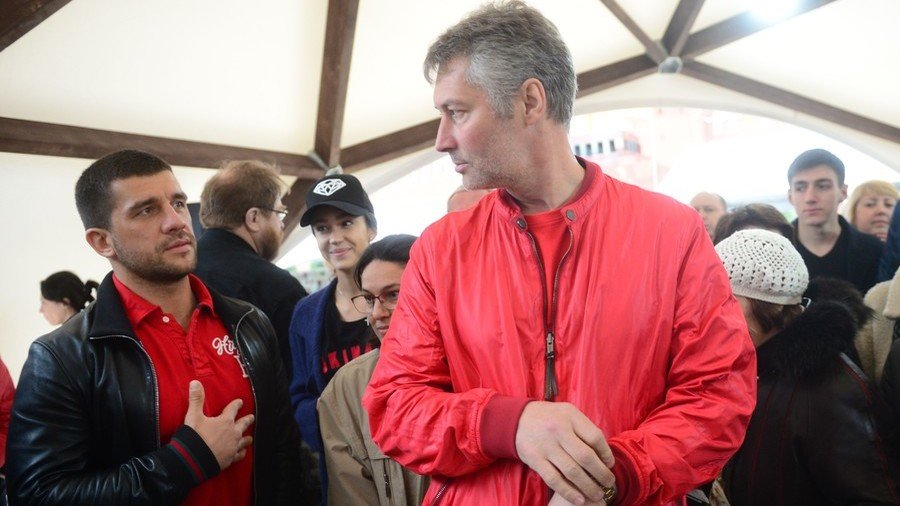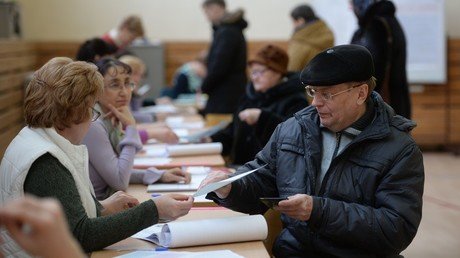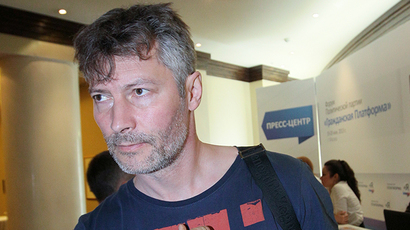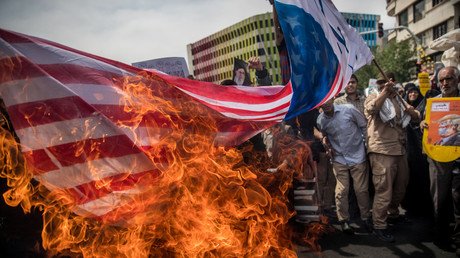Controversial Russian city mayor quits in protest over canceled elections

Yevgeny Roizman, the mayor of Yekaterinburg, Russia, who had risen to fame through his controversial anti-drug policies, has announced his resignation in protest of cancellation of mayoral elections.
On Tuesday Roizman refused to put the issue of cancellation on the agenda of the city legislature. Some of the lawmakers proposed that procedural issues should be taken care of by one of mayor’s deputies. The mayor responded by closing the session and announcing his resignation.
“As I has been elected by city residents I protect the interests of city residents. We have been put into a situation in which we must legitimize someone else’s decision. I am not going to participate in it under any circumstances and I am filing in my resignation,” the ex-mayor was quoted as saying by the regional news site E1.ru. When reporters asked Roizman about his future plans he said that he would concentrate on projects outside politics, like a charity foundation or a hospice.
The press service of the Yekaterinburg legislature told Interfax that they had received the mayor’s resignation request and would look into it on Friday. Regional elections commission told TASS that until then the chairman of the city legislature, Viktor Testov, would be acting mayor of Yekaterinburg until the next nationwide election day in September.
Yekaterinburg reintroduced the direct mayoral elections in 2010, but made this more of a representative post as all major decisions on running the city are taken by a hired city manager. Roizman was elected mayor in 2013 and sought to become the governor of the whole Sverdlovsk Region in 2017 but failed to receive sufficient support from local lawmakers and attempted to persuade voters to boycott the polls, failing in this as well.
In April, the Sverdlovsk Region legislature voted to abolish direct elections in Yekaterinburg and introduce the procedure in which the members of the local council will choose the city mayor from a list of qualified candidates that will be selected by a special commission.
This caused protests in the city with slogans like “We need a mayor, not a puppet” and “Our choice is our right” but the reform went on. Moscow authorities refused to interfere with the issue. “This is fully and entirely a matter of the local Legislative Assembly, that’s why we can neither meddle nor comment,” Vladimir Putin’s press secretary Dmitry Peskov said.
Despite his high popularity in Yekaterinburg and Sverdlovsk Region, Roizman is a very controversial figure. In Soviet times the future mayor served a two-year sentence for theft and fraud which triggered rumors of his criminal connections that last to this day.
His main project used for self-promotion is the “City Without Drugs” foundation – a self-styled rehab center where activists treated addicts with incarceration and hard labor, often against their will. After a while, mass media started questioning these methods, claiming they often fell under the definition of kidnapping and illegal imprisonment.
A number of cases were started in connection with patients’ violent deaths and in 2002 two rehab directors were sentenced to prison for torture and inflicting traumas that caused death after they badly beat two patients after a failed escape attempt. In 2009, several activists from one of the foundation branches were tried for kidnapping and illegal imprisonment, and the head of the rehab was eventually given a suspended prison sentence.
In addition, Roizman is known for extremely racist views, and in his public statements and on his blog he constantly blames the drug problem on local Roma communities and immigrants from Central Asian republics.
Like this story? Share it with a friend!
















